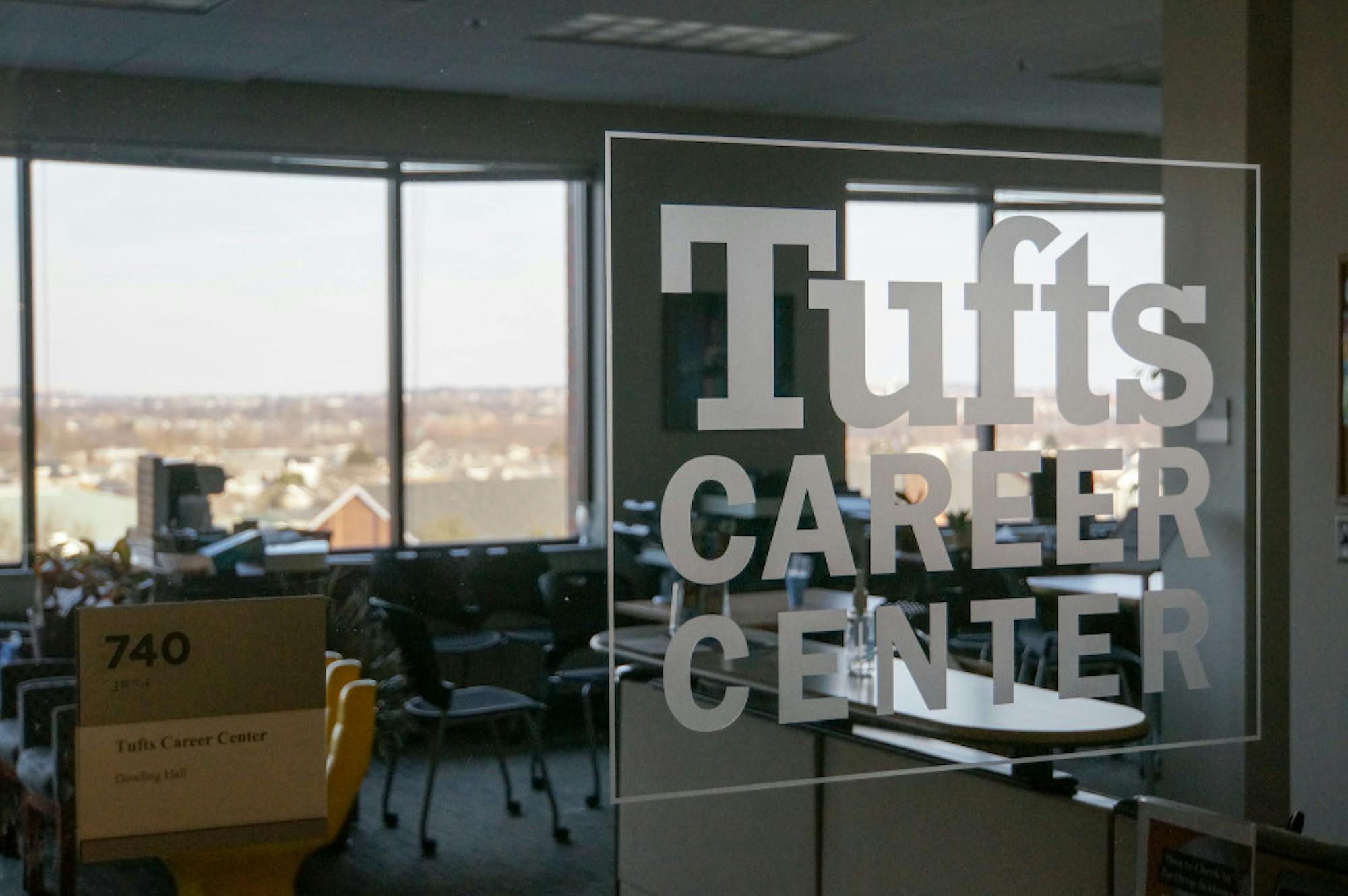Disclaimer: David Levitsky is a former managing editor at the Daily. He was not involved in the writing or editing of this article.
With the global economy taking a major hit from the COVID-19 pandemic, many graduating seniors are struggling to determine their next steps into the job market.
An article published in 2006 by three economists found that college seniors graduating into a recession face hardships in salary and earnings for up to eight to 10 years. For some graduates, entire industries have been put on hold.
Jake Zaslav, a graduating senior, said the television production industry has been halted almost entirely, with most companies in a hiring freeze.
“It’s really anxiety-producing, because even when the main crisis is over, who knows when the media will go back to normal?” Zaslav said.
Other Tufts seniors have been stripped of full-time employment offers, including David Levitsky. He called the impact of COVID-19, "in a word, overwhelming" for the Class of 2020.
“Before you can even start a job search, you have 'the worst market since the Great Depression' hanging over you. Everyone is just overwhelmed,” Levitsky said.
He received a job offer in October, but it was rescinded in March.
“The company I was going to work at sells restaurant technology, so it’s a pretty tough industry to be in right now,” Levitsky said.
Although Levitsky has managed to secure a different job, he noted that it is extremely difficult for people entering more traditional job fields.
“I have friends that are interested in banking or real estate or more traditional fields," he said. "Morale, especially for people that are going down more traditional career paths, is low."
Philip Oreopoulos, one of the authors of the 2006 article and a professor of economics at the University of Toronto, wrote in a draft op-ed that seniors who graduated from college during times of economic hardship earned about 10% to 15% less in the first year after graduation, compared to “peers who graduated when unemployment rates were 3-4 percentage points lower.”
In the op-ed he provided to the Daily, Oreopoulos acknowledged that the impacts of COVID-19 may be worse.
“The longer the ‘stay at home’ restrictions, the more likely a longer economic downturn, compelling hundreds of thousands of graduates to settle for lower-paying occupations unrelated to their field," he wrote.
Oreopoulous does not, however, believe that students are without options. He suggested volunteer work, online classes to acquire new skills and graduate work as potential pathways for students.
“Youth could instead consider acquiring new skills ... now would be an excellent time to pursue a one- or two-year graduate program of interest that leads to higher earnings, a new career, or a chance to enter the labour market in better times," Oreopoulous said.
The Tufts Career Center, as well as certain professors, have taken steps to help graduating seniors.
“We have been sending proactive, tailored weekly messages to seniors with guidance and advice, resources focused on different themes ... we are, of course, holding many online appointments with seniors and advertising Zoom events,” Director of Career Development Donna Esposito wrote in an email to the Daily.
Executive Director of the Career Center Gregory Victory said that he has also been encouraging graduates to consider alternative paths to what they had originally planned.
“What could a plan B be? Explore a different industry, consider a year of service, tap into another set of your competencies to refocus on a new role,” Victory wrote in an email to the Daily.
The Career Center, however, has only been informed of fewer than a dozen full-time job offers being rescinded.
“What we are seeing more of are companies pushing back start dates to later in the summer or early fall, vs rescinding full-time offers,” Victory said.
Nevertheless, the coronavirus pandemic may present even worse challenges for graduating seniors than the economic recession of 2008, given the timing and sudden severity of the virus.
“There was a bit more lead time with the last major recession and many more [seniors] did go to grad school or do a year of service at that time,” Esposito said.
Levitsky noted that Jack Derby, a lecturer in entrepreneurial marketing at Tufts, has utilized his connections in an effort to help his students.
“Some teachers that I know are actively searching job boards or are combing through their networks to see if any colleagues are hiring. Ideally, that’s something that more professors can do,” Levitsky said. “I’m not sure if Tufts or other teachers are extending that help.”
Zaslav said, however, that there is only so much the Career Center and the university can do to help graduates, especially in certain industries.
“[The Career Center and Tufts] can provide all these services, but they can’t give me a job where there are no jobs, and in TV, there are no jobs,” Zaslav said.
Oreopoulous encouraged graduatesto continue focusing on the future and staying positive.
“My advice to graduates this year is to take a long-term perspective. What matters is your long-run well-being, not how much you earn," he said. "The pandemic presents opportunities to gain experience, help others, and mature in ways you never otherwise would have imagined."






